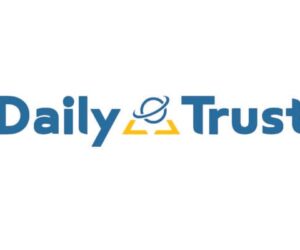2
After an explosive start to 2025 driven by foreign exchange (FX) windfalls and record profit growth, Nigeria’s banking sector is now facing a hard landing.
The third quarter scorecards of the country’s largest lenders, Access Holdings, Zenith Bank, Guaranty Trust Holding Company (GTCO), United Bank for Africa (UBA), and FBN Holdings, reveal a sector under pressure from harsh economic realities, rising costs, and fading FX gains.
The once blistering earnings growth that characterised the first half of 2025 has cooled sharply.
Despite inflation, now hovering around 18.2 percent, surging interest rates, currency volatility, and sluggish consumer spending have combined to squeeze margins and dampen profitability across the board.
Analysts say the slowdown marks a transition from a short-lived FX-driven boom to a more difficult era of organic, slower growth where efficiency, digital transformation, and cost control will define success.
From Windfall To Whiplash
When the Central Bank of Nigeria (CBN) unified the FX market in 2024, the ensuing naira depreciation unlocked massive revaluation gains across bank balance sheets. Many lenders, buoyed by the currency revaluation effect, recorded triple-digit profit growth through 2024 and into early 2025.
However, as the FX market stabilised in Q3 2025 and those once-lucrative gains vanished, the underlying weaknesses of the economy resurfaced. Rising inflation, subdued credit demand, and costly regulatory adjustments have reversed much of the earlier momentum.
Access Holdings, Nigeria’s largest bank by assets, posted N3.9 trillion in gross earnings for the nine months ended September 2025, representing 14 percent growth year-on-year. Yet, this paled in comparison to the 77 percent jump recorded in H1, signaling a cooling profit engine. Profit after tax dipped by 2.18 percent to N447.5 billion.
According to Access HoldCo’s Company Secretary, Sunday Ekwochi, the Group’s non-Nigerian subsidiaries provided a crucial buffer, contributing more than 50 percent of consolidated results. “The Nigerian operations experienced underperformance during the period, attributable to changing macroeconomic conditions, inflationary pressures, and continued regulatory adjustments,” he explained.
Similarly, Zenith Bank, long regarded as the system’s most efficient player, posted a 40.8 percent rise in interest income to N2.74 trillion but recorded a 7.6 percent drop in net profit. Total assets grew marginally by 4.1 percent, while deposits rose by 7.9 percent. Its loan book, however, shrank by nearly 6 percent, reflecting risk aversion in an uncertain economic climate.
Zenith’s Group Managing Director, Dame Adaora Umeoji, described the performance as “solid, despite a demanding backdrop,” crediting the results to disciplined risk management and deepened customer relationships. “As we enter the final quarter, our priorities are clear — service excellence, prudent growth, and sustained value creation,” she said.
For UBA, profit after tax grew by just 12.2 percent in the first nine months of 2025, compared to a blistering 115.5 percent surge in the same period of 2024. Interest income rose by 10.1 percent, down sharply from last year’s 170 percent jump. Asset growth slowed to 7.2 percent from 64 percent, while customer deposits inched up 8.7 percent — a fraction of 2024’s 54 percent leap.
At GTCO, interest income actually fell 25.6 percent, even as fee and commission income rose modestly by 16.7 percent. Net profit declined from N1.085 trillion in 2024 to N699.6 billion, while loan growth slowed to 16.5 percent. “Our focus remains on operational excellence and innovation,” said Group CEO Segun Agbaje. “We are well-positioned to sustain performance momentum despite near-term challenges.”
FBN Holdings, the oldest of the group, saw the steepest slide. Interest income tumbled 62.7 percent, fee income dropped 64.7 percent, and net profit shrank by 64.1 percent — a dramatic reversal from the triple-digit growth of 2024.
Harsh Fundamentals Take Centre Stage
The sharp slowdown in bank earnings mirrors Nigeria’s deepening economic malaise. GDP growth for 2025 is projected at 2.8 percent — below population growth — indicating declining per capita income. Inflation, now among the highest globally, has eroded purchasing power and undermined consumer lending.
Businesses, particularly in manufacturing and trade, continue to grapple with rising energy costs, FX shortages, and weak demand. The result has been muted loan growth and increased risk of defaults.
Meristem Securities analysts described the slowdown as “inevitable,” given the one-off nature of last year’s FX windfalls. “Banks are now returning to organic drivers like loan expansion and transaction income, but those are constrained by macroeconomic weakness,” the firm noted.
The CBN’s benchmark interest rate, currently at 27.00 percent has also proven a double-edged sword. While higher rates support interest income, they simultaneously raise funding costs and suppress credit demand.
“Banks are earning more on loans but paying just as much to attract deposits,” explained Johnson Chukwu, CEO of Cowry Asset Management. “With the economy slowing, the risk of loan defaults rises, so many are playing it safe — parking funds in government securities rather than lending to the private sector.”
Indeed, CBN data confirms that banks’ holdings of government securities have outpaced credit to the private sector this year — a clear sign of caution amid uncertainty.
The Consumer And SME Crunch
For retail and small business customers, the squeeze is even more severe. Inflation and high borrowing costs have slashed disposable incomes and curtailed loan appetite. Consumer lending, a growth frontier for Access and UBA, has slowed significantly.
Cordros Capital warns that the industry’s non-performing loan (NPL) ratio, which averaged 4.5 percent in mid-2025, could rise toward 6 percent if inflation and FX volatility persist. “Households and SMEs are under intense financial strain,” the firm said. “If this continues into 2026, banks may face a new round of asset quality challenges.”
Recapitalisation And Regulation Add Pressure
Adding to the mix is the CBN’s ongoing recapitalisation directive, which mandates higher minimum capital thresholds by 2026. The policy is designed to strengthen financial stability, but it has created short-term strain as banks set aside funds for capital raising and compliance.
Access Holdings and Zenith Bank have already indicated plans to explore rights issues and strategic partnerships, but with the Nigerian equities market still weak and investor sentiment cautious, fundraising could prove difficult.
“The recapitalisation exercise is necessary for long-term resilience,” said a Lagos-based investment banker, “but it will compress short-term returns as banks reallocate earnings toward meeting capital requirements.”
Ecobank’s Regional Paradox
The challenge is not limited to domestic players. Ecobank Transnational Incorporated (ETI), with operations across Africa, also reported weaker results from its Nigerian arm — once its biggest profit engine. ETI’s Nigerian business contributed just N113.3 billion in income and N9 billion in net profit in 9M 2025, compared with N607.6 billion and N257.9 billion, respectively, from its Central, Eastern, and Southern Africa (CESA) operations.
Analysts say this underscores how Nigeria’s difficult macroeconomic conditions have made regional diversification a vital hedge for pan-African banks.
Betting On Digital And Efficiency
To navigate the storm, the big banks are accelerating digital transformation and cost optimisation strategies. Access Bank continues to build out its AccessMore app and regional digital channels, while Zenith is investing heavily in automation, cybersecurity, and artificial intelligence.
UBA is focusing on payments and cross-border digital banking across its 20 African markets. GTCO, meanwhile, is pushing innovation through its fintech subsidiaries, positioning itself for growth in non-interest income streams such as payments, remittances, and asset management.
“The future of Nigerian banking lies in technology and efficiency,” said Ifeoma Okoye, financial analyst at Afrinvest. “The days of relying on FX revaluation to drive profits are gone. Only banks that digitise, innovate, and diversify their income will thrive in the next cycle.”
Outlook: Slower, Smarter Growth Ahead
Despite the immediate headwinds, industry watchers remain cautiously optimistic. Nigerian banks remain well-capitalised and resilient, with strong liquidity and expanding regional footprints.
If the central bank succeeds in stabilising the naira and inflation begins to ease in 2026, credit growth and profitability could rebound. But for now, the era of easy profits is clearly over.
“The sector is entering a new normal of slower, more disciplined growth,” said one senior banker. “The test now is not how much you earn from FX swings, but how efficiently you operate and how innovative you can be.”
With FX gains gone, inflation biting, and recapitalisation looming, the FUGAZ giants are bracing for a tougher journey — one that will demand strategic agility, digital strength, and relentless efficiency to sustain shareholder value.
As one banking executive puts it succinctly: “The easy money phase is over. What lies ahead is the real test of resilience — and survival.”








